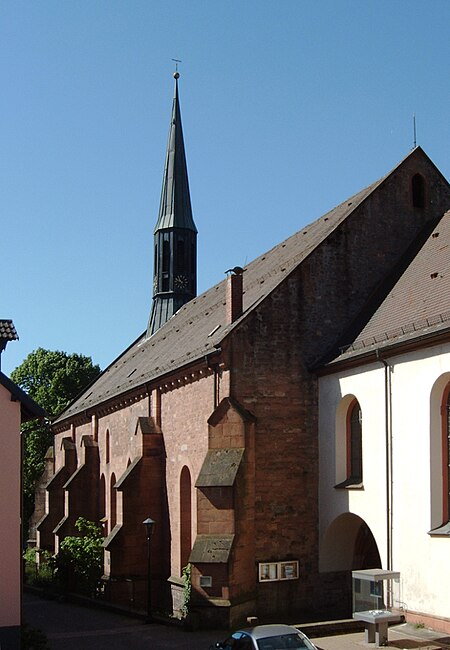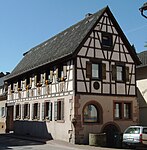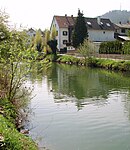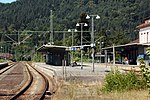Schönau Abbey

Schönau Abbey (Kloster Schönau) in Schönau in the Odenwald, in the Rhein-Neckar-Kreis in Baden-Württemberg, was a Cistercian monastery founded in 1142 from Eberbach Abbey. The present settlement of Schönau grew up round the monastery. By the end of the 12th century Schönau was already in use as a burial place of the Staufen family: in 1195 Conrad of Hohenstaufen, Count Palatine of the Rhine, was buried here, as were his son of the same name, probably in 1186, and both his wives. Adolf, Count Palatine of the Rhine (d. 1327), Rupert II, Elector Palatine (d. 1398) and other members of the family were also buried here. Conrad II, Bishop of Hildesheim, died here and was presumably also buried here. In the 14th century Schönau was also the burial place of the Counts of Erbach. During the Reformation the abbey was dissolved, in 1558. The empty buildings were occupied in 1562 by Huguenot refugees from Wallonia, to whom Schönau gave rights of residence.
Excerpt from the Wikipedia article Schönau Abbey (License: CC BY-SA 3.0, Authors, Images).Schönau Abbey
Rathausstraße, Verwaltungsverband Schönau
Geographical coordinates (GPS) Address Nearby Places Show on map
Geographical coordinates (GPS)
| Latitude | Longitude |
|---|---|
| N 49.435833333333 ° | E 8.8094444444444 ° |
Address
Evangelische Stadtkirche
Rathausstraße 9
69250 Verwaltungsverband Schönau
Baden-Württemberg, Germany
Open on Google Maps








